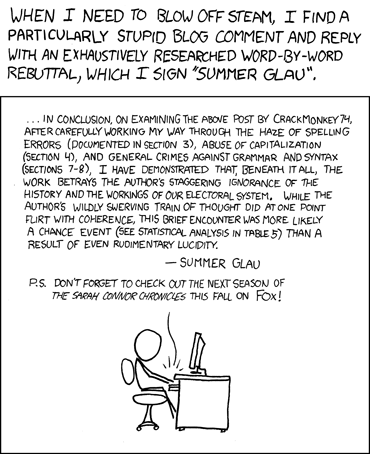This piece of mine was published in the Indian Express today.
“Where in the world are truly free markets?” a friend asked me the other day. “The kind of economic freedom you libertarians dream of just doesn’t work. Freedom leads to chaos. All markets need to be regulated by the government, which alone can safeguard the interests of the people.”
“Have you been online recently,” I asked.
“Don’t change the subject,” he said.
“I’m not,” I replied.
A couple of years ago, the libertarian blogger Warren Meyer was asked why there were so many, well, libertarian bloggers. His reply, in a nutshell, was that the internet is a libertarian space. “Libertarianism resists organization,” he wrote. Libertarians tend to be “suspicious of top-down organization in and of itself. Blogging is therefore tailor made for us – many diverse bottom-up messages rather than one official top-down one.”
In many ways, the online world is like the beautifully functioning free market that governments have never allowed in meatspace (the ‘real’ world). To begin with, the government does not pose an entry barrier to individuals who wish to have a presence online. You want to start a blog? It’ll take you three clicks to set one up. You don’t need a license for it, and you won’t have inspectors coming over and scrutinising your methods of work.
The blogosphere is a meritocratic space. Each blog finds the audience it deserves. If you like economics, you’ll find tons of good economics blogs, often much better than anything you’ll see in the mainstream media, because they’re written by specialists, not generalists. You want gardening? Literature? Technology? You’ll find content in any niche you can think of.
There is a lot of junk on the internet, but readers navigate through it easily, and soon settle on a few sites they regularly visit. Information percolates so quickly that a good new blog doesn’t take much time to build a readership. You write something nice, people who like it link to you, their readers check you out, and so it grows. Marketing and hype are generally wasted, and everything is viral. If you provide compelling content, readers come. If you write rubbish, readers go. Competition is the best regulation.
The blogger Ravikiran Rao once speculated on what would happen if the government decided to protect users from “bad blogs”, and regulate blogging. If government babus started deciding what content was appropriate for audiences, good bloggers would be intimidated away, not bothering to enter a space where there were so many hassles. Established bloggers would lobby for regulation to protect them from pesky newcomers. The quality of blogging would go down, not up – and readers would be shortchanged.
Far-fetched? Well, it works that way in many fields – such as, as Rao pointed out in his post, “private schools and educational institutions.” Indeed, in India at least, it is pervasive.
If only our government understood the power of free markets. I wish our bureaucrats read “I, Pencil” by Leonard Read, one of my favourite essays. It is a first-person account by a pencil of its genealogy – and by the end of it, you realise that a mere pencil is such a thing of wonder that no government could have put it together. It takes legions of people, possibly across continents, doing disparate things without knowledge of one another to make sure that when you need a pencil, and go to the shop to pick it up, it’s there. It’s a miracle, almost beyond comprehension, and certainly beyond planning or oversight. It takes a free market, not a benevolent central planner – economists call this process spontaneous order.
The internet benefits from this freedom. Consider Wikipedia, for example. It once used to be laughed at – how can a few volunteers produce better content than experts? – but is now a classic example of what spontaneous order can achieve. It is much broader than the Encyclopedia Britannica, and often deeper as well. It has its own self-correcting mechanisms, and its rules of use have evolved from the bottom up, and not been enforced from the top down. It shows that the voluntary actions of people working towards their self-interest is a far more powerful force than the self-important and sanctimonious supervision of governments. Online, we’re all free.
Supporters of free markets stress on the importance of the rule of law – and the internet is not a lawless zone. The laws of the real world apply to what we do online – sometimes to worrisome effect, as jailed bloggers in countries like Afghanistan and Saudi Arabia have discovered. But on the whole, the internet is free of the kind of needless, suffocating government regulation and barriers to trade that bedevil the rest of the world. Long may it stay that way.
* * *
Also read: In Defence of Blogging.
You can browse through more of my essays and Op-Eds here.
